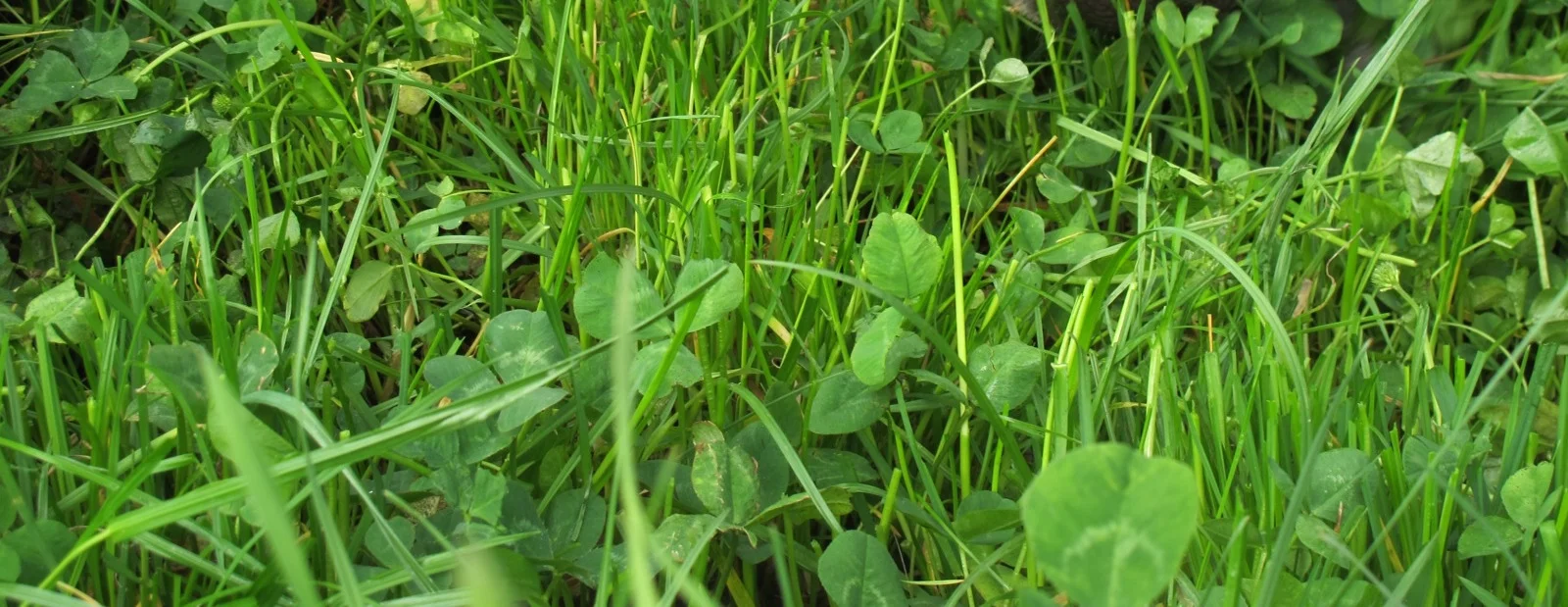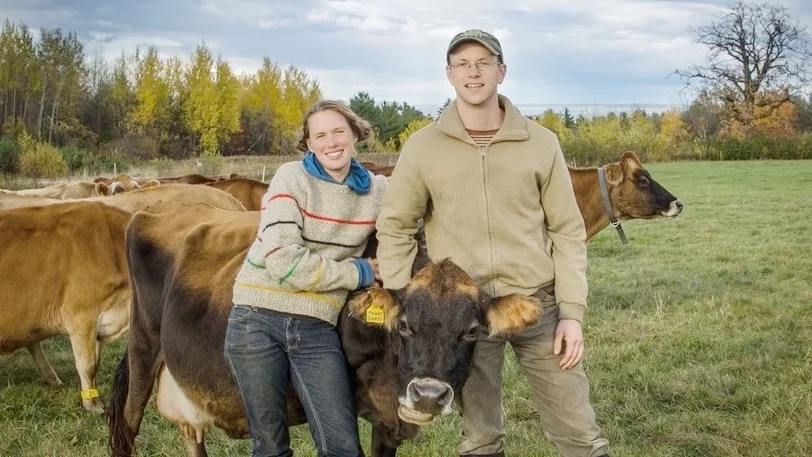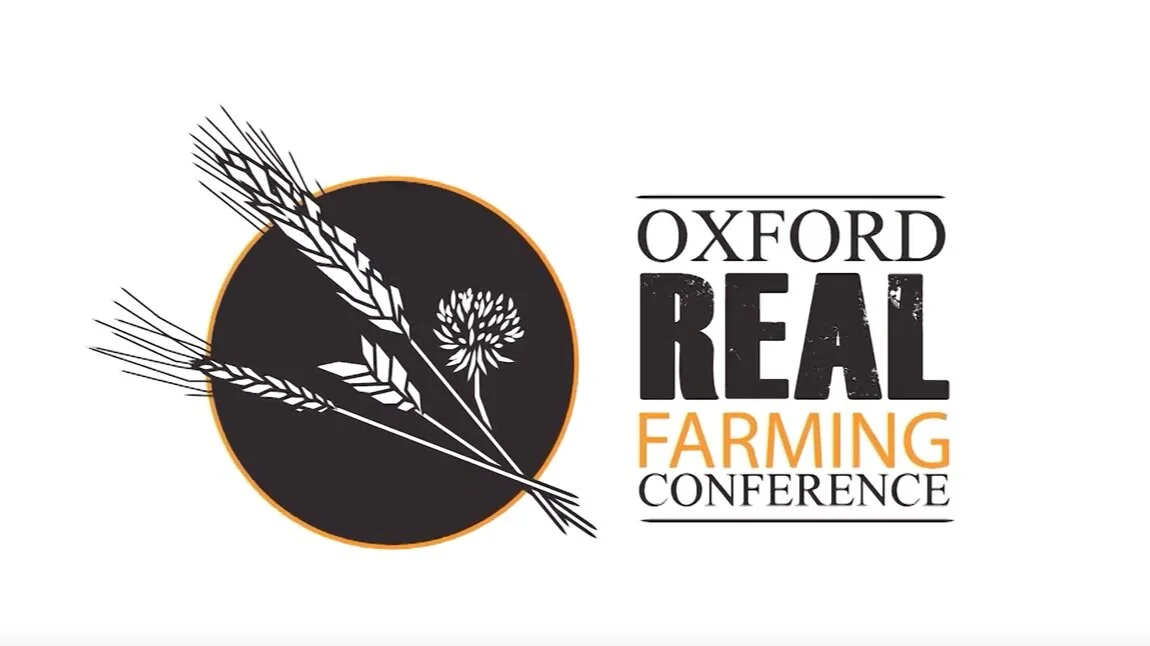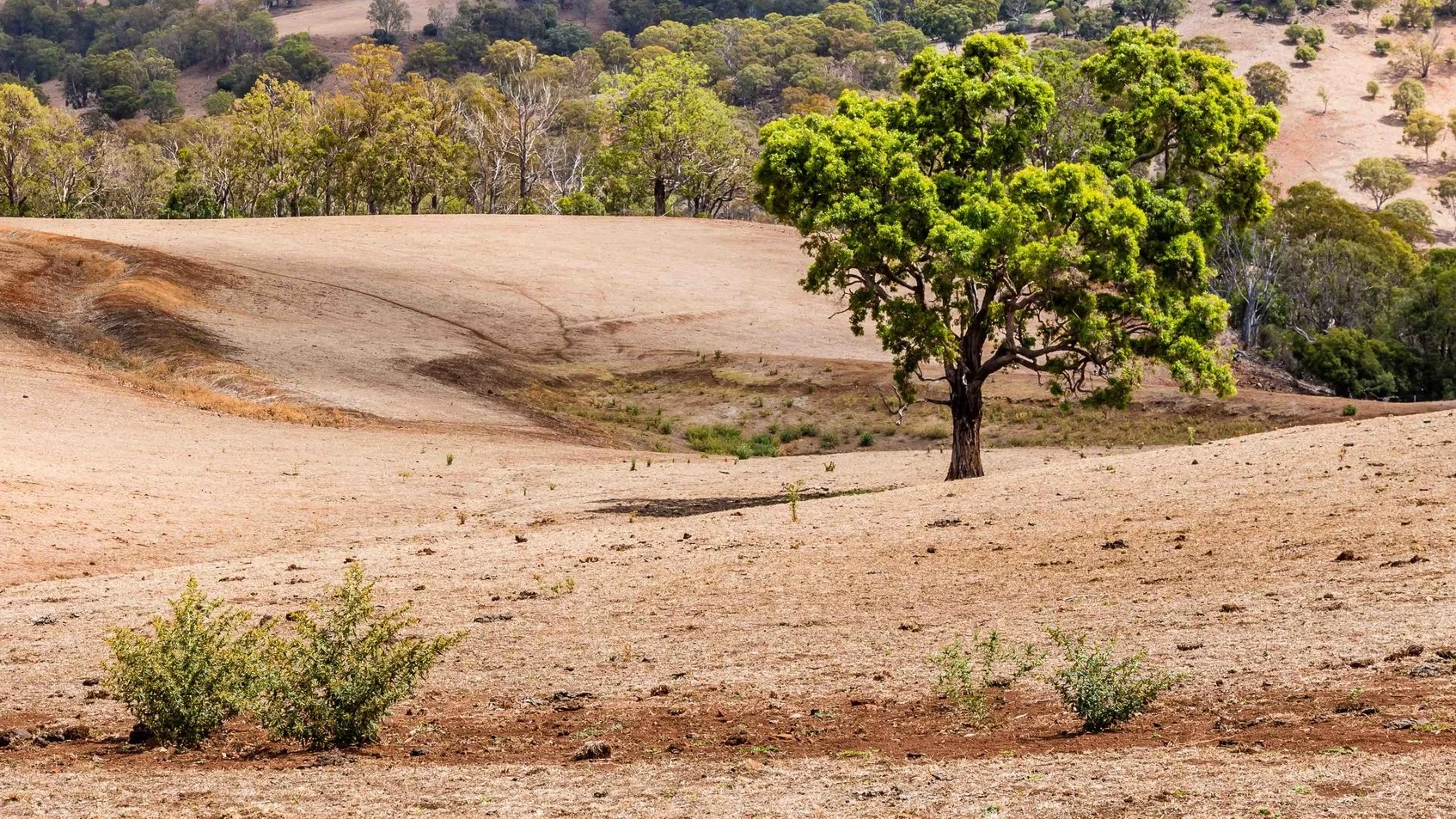““There has never been a more important time to address these complex issues and there is a clear opportunity for Scotland to take the lead in incentivising ecological farming; pioneering a pasture-based, regenerative approach that is as sustainable as it is productive.” - Wilma Finlay”
The Ethical Farming Conference was recently held on the 16th of May 2019 on Rainton Farm, Galloway, South West Scotland, who is considered to be the largest cow with calf dairy farm in Europe.
The Australian Raw Milk Movement is sharing this information because there is currently great demand for resources on the subject of ethical farming, its definitions and how that relates to animal welfare.
This community of farmers and eaters has made great strides in this area. This is believed to be the first ever conference on the emerging ‘ethical’ farming sector, exploring the very real concerns that the public has with current food production systems, and how they might be addressed. Two hundred farmers, researchers, academics and students from Finland, Sweden, the Netherlands, Ireland, the USA and from across the UK took part. The 'ethical' claim covers four pillars; fair work for people, high welfare for livestock, regenerative closed-loop production and economic sustainability. The conference explored examples of sustainable food production that grow value through an ethical proposition, rather than growing volume through intensification. It also provided a platform for sharing research and innovation in practice and, through the bringing together of ethical and sustainable innovators, it encouraged collaboration across supply chains and between researchers and producers. There is also real value involved; raw milk cheese. This collaborative conference was live streamed, which enables the international ethical food community to also enjoy the insights. Thanks for the generous sharing!
Opening of the Ethical Farming Conference
In this welcome video, owners of Rainton farm Wilma & David Finlay does the introductions and shares a little bit of background on their multiple operations. The organic farmers of 20 years operate Cream O’ Galloway Visitor Centre that has been open regularly to members of the public for farm tours and educational visits, for many years. One of the most frequently asked questions during farm tours was ‘why can’t you keep the cows and calves together?’ They
produce organic ice-cream, and The Ethical Dairy side of their business produce raw milk cheese. The conference was opened by Mairi Gougeon, Minister for Rural Affairs and Natural Environment who said: “For a relatively small country, Scotland’s efforts to tackle climate change, support farmers, and ensure the highest standards of animal welfare mean that we should be leading the way internationally in ethical and sustainable farming.” Pictured below is Wilma and David.
Pasture Management, Soil Health, Organic Carbon, Biodiversity & Regenerative Farming
““The conference was unusual in the broad mix of ages, genders and professional backgrounds who attended the event, and I found that diversity particularly enjoyable and stimulating. There is growing interest in soil health, which was reflected in the discussion and questions asked, demonstrating a real understanding by delegates of the importance of maintaining soils.” - Soil scientist Professor Christine Watson ”
Speakers Emry Birdwell & Deborah Clark are regenerative farmers from Texas who can be heard in the next video. They farm at Bridwell and Clark Ranch and talk about how the narrative of successful farming is changing to healthy soil, growing healthy forage, holistic management, time managed grazing etc. Their local community see the ranch as a model that’s viable and profitable for future generations.
Professor Christine Watson from Scotland’s Rural College (SRUC) starts her presentation at the 43:10 time marker. She describes the definitions around soil sequestration, soil organic matter and the effects of management, particularly as it pertains to the UK. She also details what grazing does that influences soil carbon.
At the 54:44 time marker dairy farmer Rob Richmond from Manor Farm, Cotswolds explains how organic, antibiotic-free and regenerative practices have evolved on the dairy farm. They are producing more pasture now than they did conventionally. Rob described how plant mixtures have become more complex and diverse, and the mineral balance had improved. There is now up to 12 inches of dark topsoil on some spots on the farm. The top 6 inches are running at 6 - 8% organic matter. According to the BBC interview below, Rob said that they had built productivity of the farm, the stocking rates have increased year on year as they’ve grown diversity, and they are more productive now than they were with ryegrass and fertiliser use, and without the inputs.
Denise Walton from Peelham Farm starts her presentation on biodiversity practices and restoring habitat at the 01:04:04 time marker.
At the 1:15:07 time marker the panel discussion commences with facilitator Nick Barnard from Rude Health.
Animal Welfare, and Animals as Sentient Beings
““This pioneering work is important, because a huge moral effort has been invested into enabling cows to live a life that matters to them, from their point of view.” - Prof Francoise Wemelsfelder”
Prof Francoise Wemelsfelder of Animal and Veterinary Sciences Group SRUC, Edinburgh speaks in this video on animals as sentient beings, and how the concept and its definitions are becoming increasingly important in law and science. She discusses how emotional expressivity is viewed, and the implications for ethical farming pioneers. What would animals say if we asked them the right questions? She says it’s about the quality of the animal’s experiences, and to learn their form of communication so we can meet our duty of care. Animals want to engage, choose, make decisions, explore and become competent at creating their own lives. It’s about a mutual relationship between sentient beings. At the 14:40 time marker she shows how farmers can farm with these ethical principles. The Ethical Dairy has worked out a system in which cows and calves can live together, rather than calves being taking away soon after birth. This pioneering work is important, because a huge moral effort has been invested into enabling cows to live a life that matters to them, from their point of view.
Dr Angela Wright presents Compassion in World Farming & Pasture for Life Association at the 19:35 time marker. She works in policy at both Compassion in World Farming and the Pasture for Life Association (PFLA). She says Compassion in World Farming works directly with farmers and food producers to make sure animals in farming systems have an increasingly better lifestyle as time goes by. They are also working to change policy. She demonstrates how mental, physical wellbeing and natural behaviour work as a triad. She thinks about welfare from the perspective of the animal. She also mentions the Sustainable Food Trust’s The Hidden Cost of UK Food document, which shows cheap food isn’t really cheap.
The discussion led by Dr Kathryn Ellis of Glasgow Vet School starts at the 37:30 time marker.
Ethical farming & Mental Health: What does it mean for the workforce?
““The Ethical Dairy is not just ethical for the livestock on the farm, it is an ethical life for me and for my family.” - herdsman Charles Ellett”
Charles Ellett, who is now the herdsman at Rainton Farm speaks about his lived experience in this video. He gave a powerful testimony about working conditions, rural wellbeing and mental health impact during Mental Health Awareness Week. Charles wanted to tell his personal story about his experiences of working in the farming industry, and about his mental health journey. He has been with the Finlays for many years and has been part of the transition to ethical dairying. At some point he also worked for an intensive 1,500 cow dairy milking three times a day, which he says had a huge negative impact not only on the cows, but also on him. Charles became overwhelmed with emotion as he described being overworked, suffering loss of time with family, and the breakdown he had due to working at an intensive system. “The Ethical Dairy is not just ethical for the livestock on the farm, it is an ethical life for me and for my family. And everything I do as a herdsman is to keep that stress to a minimum, not just for the cows, but for me. I am part of the herd.” He describes how he became desensitised during his time at the intensive farm, but learned to embrace his emotional, caring side at The Ethical Dairy again. It’s a very powerful testimony of the value of ethical farming and our social responsibilities.
From Soil to Stomach
Aled Davies of Pruex speaks in this video on the use of Bacillus soil bacteria in reducing pathogens as a different form of ‘cleaning’ in the terrain. Beneficial soil microbes are abundant in natural, healthy ecosystems, but modern farming practices have changed that. ARMM has written about Aled’s work before, see this article, and also this one that pertains more to food safety. Pruex aims to help with constructive ways to limit anti-microbial resistance (AMR). Aled briefly talked about traditional strategies to limit bacterial infections, like having children surrounded by soil bacteria. He also talked about the biocides that overwhelmingly surrounds children nowadays, and how the lack of soil bacteria manifests as immune system dysfunctions. Bacteriological-wise the idea of introducing beneficial bacteria is to outcompete pathogens, and the areas that livestock frequent is perfect for these products. Some British raw drinking milk producers, and raw milk cheese producers, are already using these products on their farms, and reports are very positive. The Ethical Dairy uses these products as well.
Andrew Whitley talks about The Ethics of the Crust, which is about bread and the use of heritage grains in sourdough fermented bread that challenges the immorality of monoculture, at the 8:10 time marker.
Will Winter, USA based holistic veterinarian talks on the benefits of raw milk at the 20:50 time marker. Unfortunately Will did not get to finish his presentation.
Martien Lankester is a medical doctor and organic farmer and speaks at the 32:30 time marker about the true costs of food. 40 Years ago he combined the two and ever since he has been working to promote health and organic farming. He discusses what would happen in the economic performance, environment and health costs of The Netherlands, if organic farming became the norm. He’s from the Avalon Project.
Nutrition & Social Impact
Session 3 starts with nutritionist Dr Zoë Harcombe Ph.D and her Nutritional Science of Red Meat and Fats & Social Impact presentation in this video. She discusses the facts about food, what we are advised to eat, why we are advised in this way, the evidence, and lastly, what we should eat.
Holistic veterinarian Will Winter was up again at the 48:55 time marker talking about The Health Benefits of 100% Grass Fed Milk.
Vegetarian Mary Clear of Incredible Edibles speaks at the 59:48 time marker about the small town of Todmorden who came together in 2008 to create kinder, more connected communities around the power of food, sharing hope for the future. They created their own businesses and their own opportunities, and for 11 years they have been growing their own food in public places on a volunteer basis. People come from all over the world to see the now tourist town. This system has become so well known, it is replicated internationally. Mary is a great story teller and social innovator. The video shows there were quite a few vegetarians in the audience.
The panel debate of all speakers on Nutrition & Social Impact starts at the 1:10:12 time marker, facilitated by Prof. Sarah Skerratt of SRUC.
The Economic Sustainability of Ethical Farming and Building Functional Systems
Prof Davy McCracken of SRUC kicks off Session 4 in this video. He is head of Scotland Rural College's (SRUC) Hill & Mountain Research Centre with a PhD in Agricultural Ecology. It's about Scotland’s approach to rewarding public benefits.
At the 7:10 time marker Ruth Layton of 3 E Framework for Sustainability shares that she was a veterinary surgeon, but now works on systems to ensure animals are healthy. They developed framework that allows them to measure comparison across species, system and geography. Even though Ruth has worked with large businesses like McDonalds, she says she wants to work with small groups of self-organising farmers because they have motivation.
Adele Jones of Sustainable Food Trust, who also works part-time for DEFRA talks at the 14 minute time marker on measuring public benefits in the context of harmonisation. This harmonisation involves the way we measure, value and communicate on farm sustainability. This will help farmers improve year on year in environmental, social and economic terms and help government design, assess and evaluate public support payments. This harmonisation framework would also enable food companies to assess and communicate the sustainability of the products they source, and help consumers better understand the sustainability credentials of the food they purchase.
Dairy farmer Bryce Cunningham of Mossgiel Farm speaks at the 22:55 time marker about the milk they sell directly to the consumer in a variety of ways that includes vending machines and coffee shops.
The Q&A found at the 37 minute time marker, is facilitated by Pete Ritchie of Whitmuir Organic. In closing, Pete sums up the day in five points. He highlights that we all want to be connected with each other and with nature, and food is the most fantastic connector we have. He says there has always a lag between the pioneers and the rest by definition, and this may be a little bit odd for a little while, until society adapts. The climate and the environment demands that we change. We need a food and farming system which delivers in terms of nutrition, biodiversity, climate and human welfare. Pete reiterates that it is important to be inclusive of people with differing points of view in this arena, because it is important to keep the dialogue open, and to keep learning from each other.
Ethical Farming Conference Background
In response to a recent crowdfunding campaign by The Ethical Dairy that received tremendous public support, farmer David Finlay announced they would use additional contributions to host a small conference. The collaborative conference was co-hosted by The Ethical Dairy, Peelham Farm, Whitemuir Organic and Mossgiel Farm, learn more about them here. Another local food fund, the Connect Local Regional Food Fund match funded the crowdfunding donations, resulting in a diverse event that was live streamed.
After an initial unsuccessful pilot 5 years ago, Rainton Farm is now in year 3 of a successful roll out of a cow with calf system. The Ethical Dairy is on a mission to prove that a kinder approach to dairy farming is possible. They have stopped taking calves away from their mothers shortly after birth. They now leave the calves - including the male calves - with their mum to suckle naturally. It means the farmers get less milk, but also less stress. Less stress means a better life for the cows, their calves and for the people who work with them. The Ethical Dairy is the largest farm in the UK using this system, and they want to prove this is viable at scale. Watch this video or listen to this interview to learn more about David and Wilma Finlay’s operation. Demand for the cheese is now outstripping supply and the business is installing a new cheese dairy to increase production.
The industrial food system is collapsing, because it is damaging our soil, our ecosystems and ourselves. The challenges are vast and complex, yet some farmer-and-consumer collaborations, like this one, is creating new whole system approaches that is showing headway.
According to the Ethical Farming Conference website, this integrated, ecological, regenerative approach is the basis behind the ethical farming proposition:
Fair work for people
High welfare for livestock
Environmentally regenerative closed-loop production
Sustainable circular economies
The Ethical Farming Conference was an opportunity to bring together ethical and sustainable innovators, both practice-based and academic. The conference supported knowledge sharing across the industry and will facilitate future collaboration, across supply chains and between researchers and food producers. It showcased value creation through innovation and ethical consumer-facing propositions, and it explored economically viable, scalable and replicable production methods that place high value on natural capital.
Scotland currently allows raw milk cheese production, but is one of the three countries that ban raw drinking milk from cows for human consumption. Australia and Canada are the other two countries. The UK has a Cow Calf Dairies website showing where consumers can buy these ethical, high-demand products. To date there are 11 dairies in the UK.
““The conference is the start of a conversation that invites our industry to meaningfully explore the very real concerns that the public has with current food producing systems and how we might address them. Ethically produced food is an important emerging market and livestock farming needs to have a place within that market. “ - Wilma Finlay”
““We know that we’re a pain in the ass to those in the industry pushing an intensification agenda. We get it. But the market is changing faster than policy can respond. Contrary to powerful, vested interests who are currently demonising all beef and dairy, GRASS-based beef and dairy can deliver good health and positive environmental outcomes. That’s what the conference set out to explore.” - David Finlay”
Audio: The BBC’s Nancy Nicholson went to the conference and spoke to host Wilma, dairy farmer Rob Richmond and Prof Davy McCracken. 21 May 2019 (source)
Image: There were also multiple farm tours. See more photos in the gallery.
““We can reward farmers for the number of people they nourish in the full sense of the word, rather than the number of tons they produce. In that way citizens can engage with people who they can trust to be trying gradually to improve everything that they do, rather than simply selling them the lowest cost product.” - Andrew Whitley, author of Bread Matters”
The current situation on raw milk cheese in Scotland
In the last few years, the Scottish raw milk cheese industry was under significant pressure to shut down completely, which will not be discussed in this article due to the large amount of activity that took place at the time. The following, however, is the conclusion of what transpired in those years. The generous support for the raw milk cheeses that locals and international raw milk cheese lovers value so much, made this possible.
Last year Scottish cheesemakers Errington Cheese won a legal ruling and £400,000 compensation from South Lanarkshire Council after it tried to have the company’s stock of Lanark Blue and Corra Linn destroyed. The cheese was blamed for the death of a young girl. The ruling found that Errington Cheese did not breach safety standards and was safe to eat.
More recently, a group of five Scottish cheesemakers dropped their legal action against Food Standards Scotland, because the guidelines that they say would have killed off raw milk cheese production in Scotland, had been changed by FSS. A crowdfunding campaign of an initial £15,000 for legal fees, allowed for the preparation and submission of a potential judicial review that enabled them to take the action. Errington Cheese director Selina Cairns, said: “We don’t believe that FSS would have made any changes to the document had we not gone ahead with the judicial review - only made possible by the support given to the crowdfunding campaign. We’re extremely hopeful that this is the last chapter of what has been an incredible hard couple of years, with actions from FSS having detrimental impacts on our business and sales growth.”
She also said: “Now that we have fair and achievable guidelines in place, we look forward to getting back on track with production and sales, with the hope that we can begin to rebuild our local workforce.”
According to another article, this new guidance is now in line with World Health Organisation and EU recommendations. The producers said they are 'delighted' with the outcome of the ruling, adding that the guidance has now ‘undergone significant changes which secures of future of raw milk cheese production in Scotland’. Read the article for more details.
Ethical farming in Australia
Australia is behind in this area because of the unemotional elimination of competition so frequently seen in business, and because the kind of farming operations that makes ethical farming viable are not allowed to flourish. It is when farmers enjoy frequent interaction with consumers, that they realise where the demand and the market is going, and this is often only possible where the laws of the land allows high-value foods like raw milk cheese and raw drinking milk. Raw milk cheese production is legal in Australia, but it is subjected to tough standards; making the cheese exclusive and unaffordable for most. Raw goat’s milk is allowed in some states, but availability is limited, and the production standards challenging for the farmer.
When a society comes together and makes decisions in harmony, when it respects its most noble traditions, cares for its most vulnerable members, treats its forests and lands with respect, then it will prosper and not decline.
Unfortunately we are seeing a resistance to ethical farming in Australia. There are people who are clinging to the status quo and the third-dimensional us-versus-them mentality. They seem to want things to go back to the way they were, where no conversations about the environment, animal welfare or harmonising with Mother Earth takes place. It helps to feel compassion for them, because clinging to old outdated ways must be getting more challenging by the day. Our world is changing and if people are unable to let go, go with the flow, or bend, they will break. This is a time for embracing change and implementing more environmentally-friendly ways that meets with consumer values and approval.
Related Articles:
Science ‘has to catch up with farms’ work’
Cheesemakers claim victory after crowdfunding campaign
Cheesemakers end legal fight over raw milk regulations
Cheesemakers drop legal action against food watchdog as guidelines change
Cheesemakers successful in challenge against raw milk guidance
Over the Farm Gate: The Calf at Foot Dairy
Just One Tiny Industry May Emit More Methane Than EPA Had Estimated for All of Them
Startling study finds US fertilizer industry emits 100 times more methane than estimated
Industrial methane emissions are underreported, study finds
USING THE TRANSITION PERIOD TO INVEST IN COW HEALTH FOR THE NEXT LACTATION

































